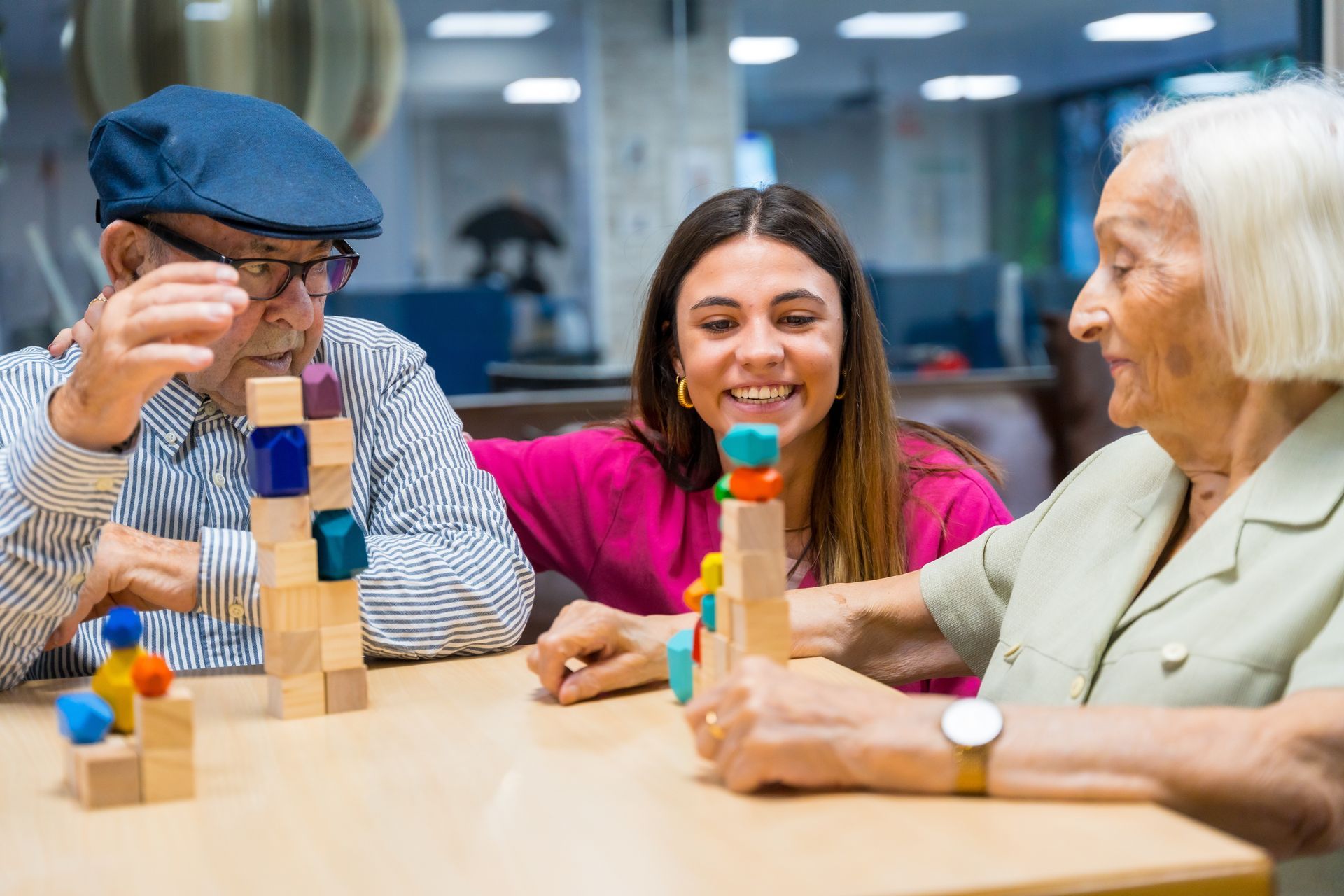BLOG
Isolation in Seniors and Why Socialization Is So Important for Their Wellbeing
While every person needs some alone time now and then, it’s important to remember that isolation in seniors can be damaging to physical, emotional, and mental health. If your loved one seems to be avoiding opportunities to socialize, or expresses feelings of loneliness, it might be time to consider a change of lifestyle.
Isolation in seniors is a common problem
- According to the Pew Research Center’s analysis of Bureau of Labor Statistics, Americans aged 60 and older are alone for more than half of their day. This amounts to about seven hours. For those who live alone, the number rises to more than 10 hours a day.
- 14% of older American report spending all of their day alone, compared with just 8% of those younger than 60.
Spending time alone isn’t necessarily a bad thing. But feeling left out and isolated is—especially considering the effects on health—and this type of harmful loneliness can occur whether a person is alone, or around others. It’s the
feeling or perception of being lonely that matters.
Negative health effects of isolation in seniors
Research has linked social isolation and loneliness to higher risks for:
- High blood pressure
- Heart disease
- Obesity
- Weakened immune system
- Anxiety and depression
- Death
Why are so many older adults spending too much time alone?
- Loss of spouse, long-time friends, or previous social connections
- Challenges with leaving the house: driving, arranging a ride, inability to walk to a shop, church, or park
- Anxieties over social events due to hearing or vision loss, memory decline, mobility issues
- Fears of becoming lost or confused
- Fewer invitations or opportunities to get out and about
If your older loved one falls into any of these categories, it might be a good time to have a conversation with them and find out how they feel about being alone. In addition, take them to their family doctor to determine if there are physical changes in their health that need to be addressed, such as declining eyesight, hearing, or mobility.
What’s the answer for isolation in seniors?
In some cases, arranging for a home health aide can provide some companionship as well as assistance throughout the week. Still, a person hired to help care for your parent is not a substitute for a good friend.
Adult day care is another option where seniors can spend several hours a day in the company of others. But the problem of being alone at night or on the weekends might still be a concern.
The best solution could be the one that benefits your loved one 24/7, every day of the year, by providing the opportunity to socialize with peers in an easy, low-pressure environment—a senior living.
Why residential senior living might be the right answer for isolation in seniors
Being around others, having friends to talk to, sharing memories and life stories, having someone close by are all hugely beneficial to senior health and wellbeing. Socialization has been shown to be one of the most effective ways for seniors to improve their mood, cognition and memory recall.
It’s easy to understand why. After all, most older adults have had a close companion most of their lives: a spouse, partner, or family member. This type of close companionship helps a person feel most comfortable and remain heathier, benefiting from feeling part of a family.
That’s exactly what residential senior living such as that offered by Assured Senior Living can offer. Our neighborhood clusters of resident homes create a small, tight-knit community where members feel at home amongst close friends and neighbors. The goal is always to get residents out of their rooms, so their bedroom becomes primarily the place where they sleep and rest—not where they spend their entire day
This family-style living encourages each resident to make friends and participate in events that feel familiar, such as neighborhood walks, birthday parties, or even the family-style dining that makes conversation easy and reassuring.
We believe home is where people are happiest and healthiest. We’d love to tell you more about how residents at Assured Senior Living are enjoying a life filled with good friends and good experiences.
Find out why Assured Senior Living is different. Download our free guide, Family Decision Toolkit. Or contact us today.















